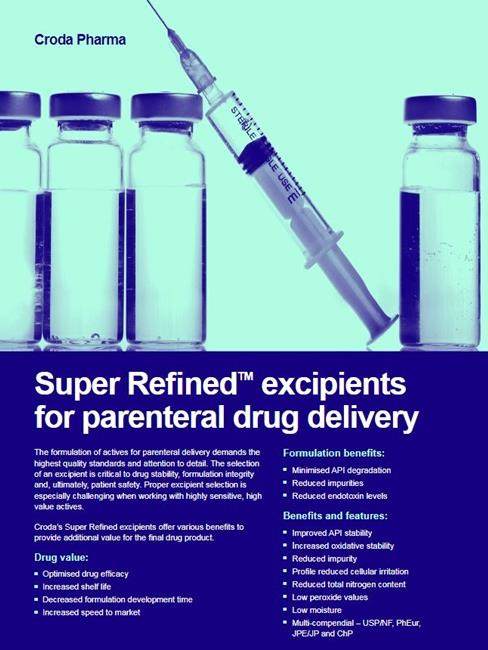Protein Delivery Leaders: Andrew Bright
In this Protein Delivery Leaders interview, we speak to Andrew Bright, PhD. Keep reading to learn more about breakthroughs in protein delivery and key challenges faced in biologic formulations.
.png?la=en-gb&h=300&w=300&hash=4E549B9CD296959561DEEA55D0610F52)
Tell us a little bit about yourself…
I’m Dr. Andrew Bright, I joined Croda Pharma in February 2023 as a Technology Specialist within the applications team based in the UK. My role supports the global business and our customers. I completed my PhD in 2015 at the University of Bradford investigating novel excipients for the stabilisation of vaccines in the freeze-dried state. I’ve worked in industry for approximately nine years focusing on parenteral formulation development for liquid and freeze-dried drugs. Since working in industry across pharmaceutical companies, CROs, and CMOs I have developed formulations for APIs ranging from small molecule drugs to biological entities including monoclonal antibodies, vaccines, exosomes, LNPs , and viral vectors.
Did you always want to be a scientist? Who most influenced you to go down this path?
I was always interested in science and enjoyed learning from a very early age. Whilst at university, during my undergraduate third year project, I discovered my passion conducting lab research. This allowed me to focus on what I wanted do, my lecturers encouraged me to pursue a PhD, which kick started my career in formulation science and pharmaceutical science.
What do you consider to be the greatest breakthrough in Protein Delivery in the last decade?
One of the greatest breakthroughs in general for Protein Delivery is the increased availability of high-throughput screening to conduct rapid screening of conditions for upstream synthesis and downstream purification. Furthermore, this has allowed for rapid preparation of formulations and analytical testing which can reduce the amount of material required for testing, therefore reducing development time and costs for new therapies.
One of the biggest industry challenges is breaking the ‘cold chain’ as many biological drugs require storage and transport at -20°C or -80°C to ensure suitable shelf life and stability, posing many limitations. This can sometimes be overcome by creating a freeze-dried product which may have improved stability at elevated temperatures, but the additional labour and resources required to develop a freeze-dried products and the additional cost of manufacturing time, can contribute to an increased overall cost of the product which may make the product commercially non-viable.
Can you give us a sneak peak of your presentation at DDF 2024?
At DDF Berlin, I’ll explore detergents. I will be discussing their historical use, regulatory challenges, and emerging alternatives to a recently banned product. I’ll also be sharing a solution to the frequent challenge of free fatty acids in mAb formulations using polysorbates .
What is your favourite pharmaceutical innovation and why?
The wide range of drug carriers, such as lipid nanoparticles, liposomes, hydrogels, and other technologies which are now available for the delivery of therapeutics. Many of these drug carriers are optimised and tailored to the drugs physical chemical properties to meet clinical needs of the drug, such as sustained or targeted release.
Share something we don’t know about you...
I enjoy rock climbing and skiing. And would prefer to be doing those instead of giving a presentation!
Our entire business, not just our research and development teams, collaborate with you to provide tailored excipient solutions to speed up formulation development and time to market, and address bioprocessing challenges with high purity ancillary materials. We empower biologics delivery through innovation, formulation, and application.
Explore recent blogs:

Biologics Leaders: Mo Pinto

Croda expands biopharma capabilities through strategic partnership

